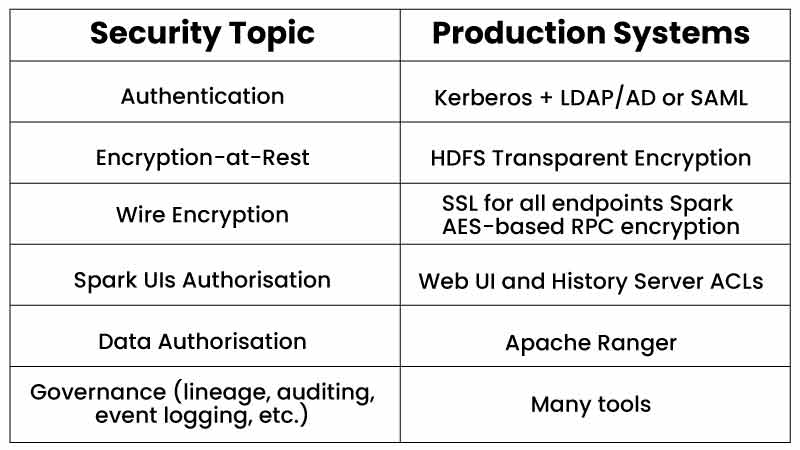From accelerating analytics workloads to ensuring robust data governance and compliance, discover how Speedata’s innovative solutions drive efficiency and transform industries.
In the fast-paced data management and analytics landscape, innovative solutions are paramount for driving efficiency, enhancing decision-making, and staying competitive. Enter Speedata, a pioneering force in the field, poised to revolutionise industry practices with its groundbreaking Analytics Processing Units (APUs).
In this exclusive interview with Jonathan Friedmann, Co-founder and CEO of Speedata, we delve into Speedata’s vision, strategies, and the transformative impact it’s set to make across various sectors. From democratising access to advanced analytics capabilities to ensuring robust data governance and quality assurance, Speedata’s commitment to excellence shines through. Join us as we explore the future of data management through the lens of innovation and ingenuity with Speedata at the helm.
Excerpts from the interview;
How do you envision Speedata driving positive change and advancing industry data management practices?
By providing dedicated, specialised Analytics Processing Units (APUs) specifically tailored to accelerating analytics workloads – the world’s largest –, Speedata empowers businesses to extract valuable insights from their data far faster and more efficiently.
Speedata’s APUs have the potential to democratise access to advanced analytics capabilities, leading to more informed decision-making, improved operational efficiency, better products, and increased competitiveness, helping transform healthcare, finance, telecommunications, pharma, and a host of other industries. Speedata enables organisations of all sizes to leverage sophisticated data analysis tools previously only accessible to large enterprises with vast resources.
Furthermore, Speedata’s technology optimises resource utilisation and reduces infrastructure costs associated with data management. By accelerating data processing, organisations can handle larger volumes of data with existing resources or scale their operations more efficiently.
In short, Speedata has the potential to be for data analytics what NVIDIA has been for AI.
How do you stay informed about the latest advancements and innovations in data management, and how are these incorporated into Speedata’s strategies?
The six members of Speedata’s founding team have all been leaders in leading-edge processor and data systems companies and the innovators behind some of the most important data management breakthroughs coming out of Israel’s Technion during the past decade.
Managers also lead Speedata’s product team from leading data companies worldwide, including Nvidia, Cloudera, Microsoft, and Oracle.
Speedata is also a strong partner with and innovator in the ecosystems related to Databricks, HPE, Dell, and Microsoft.
We also take advantage of our relationships with the data management space – including participation in corporate and academic conferences, as well as journals and publications on the latest and greatest in the space – to inform our corporate direction and product strategy to reflect the most important advancements in the technology and the prevailing needs of the market.
What are the key features and functionalities differentiate your flagship products in the market?
By harnessing the power of Speedata’s first-of-its-kind APU, a single server can replace multiple racks of traditional CPUs, significantly reducing costs, power consumption, and physical space requirements.
The APU is also a game-changer for boosting productivity. Compatible with all legacy software, it accelerates time to insight up to 100x faster. It empowers organisations to tackle substantially larger and more intricate datasets easily, fostering innovation and driving strategic decision-making processes.
How does Speedata prioritise data security and ensure compliance with regulations like GDPR and CCPA?
Speedata is currently focused on accelerating Apache Spark workloads, especially compute-intensive queries. We rely on all the existing layers of security of Apache Spark, and Speedata customers can keep their security practices the same to incorporate and leverage the APU.

Share an example of a technical challenge your team faced while developing or improving your products and how you successfully addressed it.
One of our difficult challenges was writing a compiler for the APU so it wouldn’t be too tightly coupled with the distributed computing engine (like Spark). A Spark-specific compiler would have required us to write a new compiler for every new engine we supported, such as Presto, Trino, Hive, etc.
Thankfully, we discovered a project called Substrait that specifies a format for describing compute operations on structured data specifically designed for interoperability.
Although Substrait allows us to write to just one compiler, we still needed to translate Spark’s whole stage physical plan using the Gluten project.
Thanks to designing a solution with composability in mind from the beginning and the availability of projects like Substrait and Gluten, we’ll be able to add support for new engines in the future in a fraction of the time and at a much lower cost.
How does Speedata handle scalability and performance when dealing with large data volumes?
Traditional CPUs often need help to keep up with expanding data workloads. Speedata’s APU chip is designed to tackle the obstacles facing big data, accommodating growing volumes, increasing processing demands, and accelerating performance and efficiency at scale.
Speedata’s APU dramatically improves runtime by up to 100X, enabling businesses to scale and innovate more effectively. In a recent simulation conducted by Speedata, data analysis on a single server with 4 APUs took 8 hours, as opposed to a standard data centre, which would have taken four days and over 100 servers.
What specific approaches does Speedata employ to ensure data governance and quality assurance?
Speedata’s APU is deployed as a PCIe card or on-premises server in the data centre. Therefore, data governance is not a major issue because data does not leave the customer’s systems.
We strongly emphasise quality assurance. Our customers rely on Speedata to run their computations quickly and correctly. To achieve high levels of quality, we perform extensive SQL execution test suites that execute with and without the Speedata accelerator, helping us to validate query correctness under a wide range of data types, data volumes, data skew, etc.
Can you showcase a successful client implementation of Speedata’s solutions, highlighting the technical aspects and positive outcomes achieved?
Speedata recently released the results of a simulation of its APU in the pharmaceutical industry, which faces challenges accelerating drug discovery processes due to time and cost issues commonly found with compound similarity analysis. The APU’s successful implementation and execution is highlighted below:
- Technical Aspects:
-
- Speedata’s APU demonstrated a 280x improvement over traditional CPUs in compound similarity analysis, completing the analysis in just 19 minutes compared to 90 hours.
-
- The simulation utilised nine million compounds across 100 servers, showcasing the scalability and efficiency of Speedata’s APU in handling large datasets.
- Positive Outcomes:
-
- By leveraging Speedata’s APU, speed and efficiency in compound similarity analysis were increased by several orders of magnitude, speeding up the drug discovery process and accelerating time-to-market for potentially life-saving medications.
- Speedata’s APU empowered researchers to analyse larger datasets and explore complex drug-target interactions with better accuracy and speed, driving innovation and breakthroughs in pharmaceutical research.
Also Read: One-Third Of Middle East Leaders Expect To Be Future-Ready By 2025









